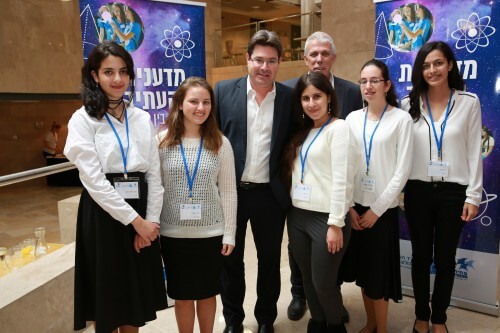Science Minister Ofir Akunis said at the ceremony: "You can already see yourselves as trailblazers. As the graduates of the first cohort of the program, you have broken a path for Israel's future sciences.

After three years, during which 530 outstanding girls from the periphery met with leading scientists and engineers, toured research and hi-tech centers and underwent training and support in their studies, the "Future Sciences" program of the Ministry of Science and the "Atidim" association has now reached its climax this week with the graduation ceremony of the first batch of female graduates held in the Knesset with the participation of Minister Science Ofir Akunis and Chairman of the Science and Technology Committee MK Uri Makalev.
Science Minister Ofir Akunis said at the ceremony: "You can already see yourselves as pioneers! As graduates of the first cohort of the program, they broke ground for Israel's future sciences. I am sure that soon we will see you in the elite group of scientists who are the pinnacle of Israel's pride in the whole world."
In the program, there are about 25 groups of 15th grade girls in 40 localities across the country, including about 200 girls from the ultra-orthodox sector and about XNUMX from the Arab and Druze community. The Ministry of Science and the "Atidim" association plan to open a new cycle of the program soon.
The program brought many fruits - a study by the Technion and Haifa University conducted for the Ministry of Science found that upon completion of three years of the program, 81% of the female students in the program are considering a career in science or engineering. Among the Arab sector in the plan, the rate is 84% and in the ultra-orthodox sector, the rate is 70%. Also, the study showed that 64% of the female students in the program study 5 units of mathematics, compared to 16% of the proportion of students who study 5 units of mathematics in the general population.
Zeev Hayut, CEO of the Atidim Association, said at the ceremony: "The goal of the 'Future Sciences' program is to integrate more women into the professions of science and technology. The response and demand for this program and the field as a whole show that these professions are not the domain of men only. I believe that the vision of seeing women and men in equal percentages in engineering and science is possible. In order for this to happen, it must be started at an early age, as the program does."
